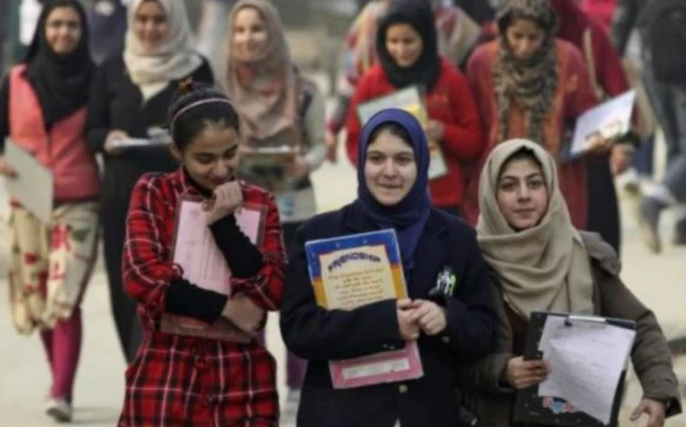Liberals are aghast that a largely right-wing group of Members of European Parliament (MEP) were recently in the Indian state of Jammu & Kashmir to form a first-hand opinion after its special status was withdrawn on August 5 this year.
The visit by 23 EU parliamentarians, technically the initiative of little-known non-governmental group Women’s Economic and Social Think-Tank (WESTT), is an “unofficial” one since neither European Union (EU) nor Indian government is directly involved, yet given the noise you would think it’s one of the biggest threat to the “Liberal Order” since World War II.
Nationalism was a great revolutionary force till the rise of Adolf Hitler in Germany in the first half of the 20th century but after World War II, it was clubbed with Nazism and Fascism by the victorious “Liberal Order” which shaped the world in the narrative of “globalization, free trade and human rights.” Europe sought to eclipse nationalism through the European Union of free borders.
Yet in essence, the “Liberal Order” became a narrative of the “elites” which waged wars, created corporate empires, sucked the developing world dry of its land, labour and resources. Profit over people became the maxim. But disenchantment has now set in. Nationalist or populist forces have brought the likes of Vladimir Putin, Xi Jinping, Narendra Modi and even Donald Trump on to the centre-stage. European Union itself is battling for it survival.
Brexit is just a symptom of people’s distrust or Euroscepticism. Unemployment and immigration are core issues. Nationalist forces are on the rise: As per Bloomberg, support for populist forces in 22 of 28 EU countries now has never been higher in the last 30 years. Nationalists are in majority in Italy, France, Poland and Hungary. Traditional parties for the first time weren’t voted to majority by 400 million people in the 751-seat strong European parliament this May. A broad nationalist front, European Alliance of People and Nations (EAPN), with a “Europe of fatherlands” as its mission, has been set in motion.
Viewed in this backdrop, the outcry over the visit of EU parliamentarians to Kashmir was given. “Indian Express” reminded its readers that one of them, Thierry Mariani of France, had supported Russia when Crimea was annexed in 2014. Western media pointed out that Modi government only days ago had denied a similar permission to US congressmen. The general refrain is that fascist, Islamophobic forces in Europe have been preferred to “liberal voices” by the Modi government.
Rebuts Kanwal Sibal, India’s ex-foreign secretary: “Should we invite Ilhan Omar? (US congresswomen) or Jeremy Corbyn (UK Labour Party leader) who have hostile views on India? Or The Economist, New York Times, CNN and Washington Post etc who are known to harbour anti-India views? How do they want us to fight this information war?”
Added Sibal: “These EU parliamentarians have won people’s mandate. They are elected representatives of people. They are no more or no less than other parliamentarians. Why disrespect people’s choice?”
Closer home, Indian Opposition is bristling with anger that Kashmir Valley remains out of bound for them but not for their counterparts in EU. “Who’s internationalizing the issue now,” asked the Opposition to ruling BJP who has all along said that J & K is an “internal” issue. “How could the state be normal when leaders of political parties are still under house arrest,” is another angry response. Asaduddin Owaisi, a Muslim leader, bunches both Modi government and visiting EU parliamentarians together as “Islamophobic.”
But do EU parliamentarians “internationalize” the issue? Not really since they are not “intervening” in Kashmir. It’s a perception battle for which Modi government is readying itself for coming months, even years. And didn’t the opposition itself “internationalize” the issue by seeking out Corbyn on Kashmir recently?
Leaders of political parties are under house arrest but that’s because the authorities don’t wish to take chances with the likes of former state chief minister Mehbooba Mufti who had warned of “rivers of blood” if Kashmir’s special status was revoked.
Indian opposition leaders are denied visits because their agenda is not “human rights” but “politics.” It would directly play into the hands of Pakistan which quotes them in international forums, like Pakistan’s prime minister Imran Khan recently did in United Nations General Assembly (UNGA). “If they really care about human rights in Kashmir, then why don’t they (Opposition) include it as their goal in the political manifesto?” questioned Modi in a rally recently. The fact is Indian parliament had overwhelmingly voted against the “special status” of J & K recently.
The charge of Islamophobia too seems far-fetched. J & K comprises of diverse religious groups and not just Muslims. EU parliamentarians opposed to migrants isn’t Islamophobia. Besides, the “special status” to J & K was blocking national social welfare schemes from benefitting the locals, including Muslims. A larger voters’ turnout in the recent Block Development Council (BDC) elections in the state is cited as proof of people’s support.
It’s not to say that the EU parliamentarians’ visit was without the shadow of deaths. Six migrant workers were gunned down by terrorists; shops were forcibly closed in Srinagar and stone-pelters targeted armed forces in narrow lanes of old Srinagar. It is as if the terrorists were intent that EU parliamentarians don’t carry a “peaceful Kashmir” image back home. But then, the perception war has just begun on Kashmir.
(The author penned this piece for rt.com).


